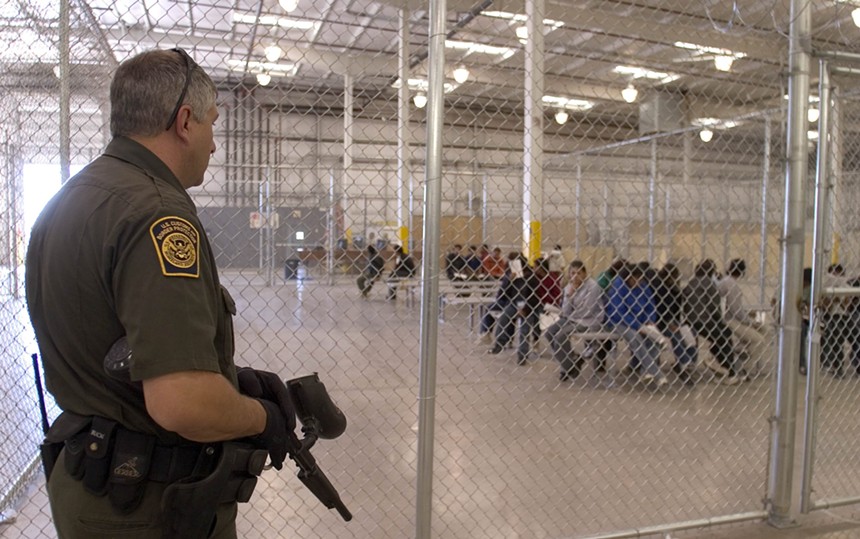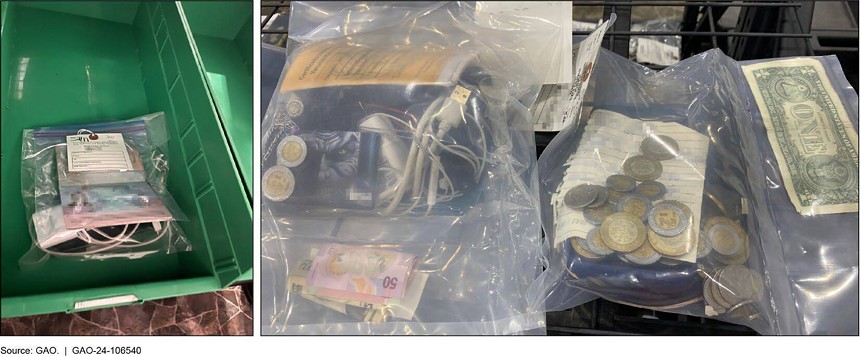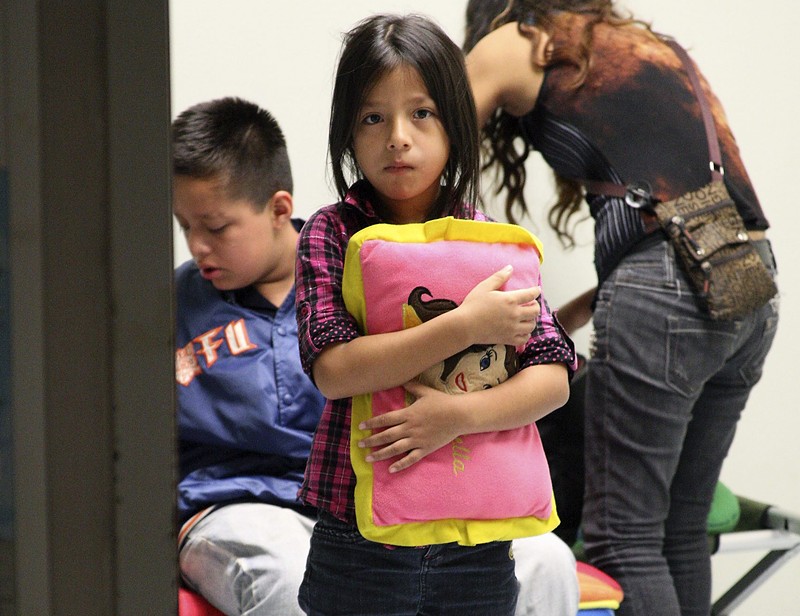All have been lost at migrant detention facilities along the southern border, according to a recent report from the Government Accountability Office that affirms long-standing allegations by migrant advocates.
By the time migrants’ formal complaints to Customs and Border Protection, Border Patrol or other agencies are investigated, the GAO found, their belongings have often been discarded.
“As the number of encounters with noncitizens seeking to enter the U.S. without valid travel documents has increased, so has the volume of personal property that must be collected, stored, and transferred or returned,” the report said.
Officials at the Department of Homeland Security declined to answer questions about the GAO’s findings, referring to a response included in the report: “DHS remains committed to processing the personal property of each detainee in its custody in a secure, efficient and transparent manner that prioritizes the safe, timely, and efficient processing of migrants.”
Migrant advocates say that the priority on processing individuals has too often entailed confiscating what little they carried with them across the border.
“We’ve been doing this advocacy for a long time, and we still cannot come up with a single reason why people should be stripped of their birth certificates and not given those back,” said Noah Schramm, border policy strategist for the American Civil Liberties Union of Arizona. “It just doesn’t make any sense.”
ACLU of Arizona often partners with Kino Border Initiative, a group giving humanitarian and legal assistance to migrants. KBI operates in Nogales, Arizona, and Nogales, Mexico. The group said it spoke to over 9,200 migrants last year and has been filing complaints to government agencies twice a month on their behalf.
In one instance, KBI said a woman told the organization a Border Patrol agent ordered her to “Take out everything from your bag that isn’t worth anything and throw it away here. That includes Mexican money. It’s worthless, you can only keep American money.”
According to KBI, which translated the woman’s comments from Spanish, the woman said she surrendered 300 pesos – about $17.70 – that the agent then ripped up. She said the agent did the same to the other people in her group.
The KBI reports include another woman’s account of being attacked and threatened by the same cartel that kidnapped her daughter-in-law and murdered her son years prior. She then went to the U.S.-Mexico border and presented herself to a Customs and Border Protection officer.
The agent threatened to destroy the evidence she’d brought to support her asylum claim, telling her, according to KBI, “If you take your documents out, I will rip them up.”
CBP agents proceeded to throw away many of her belongings, KBI said, including the evidence to support her asylum claim.
“The process to replace that is not going to be simple, and certainly not for people who have just arrived in a country that is largely foreign to them,” Schramm said.

Migrants are often moved out of packed border facilities without all of their belongings, sometimes without having a chance to take stock of what was left behind, advocates say.
Photo courtesy of U.S. Customs and Border Protection
'Real-life consequences'
GAO obtained and analyzed 215 reports about personal property complaints from multiple DHS offices from October 2022 to March 2023. The complaints were submitted to these offices by migrants and nongovernmental agencies on behalf of those migrants.In the report, nearly half of the complaints GAO saw were for unaccompanied minors. In 2023, there were over 135,000 encounters with unaccompanied minors at the southern border, making up 5% of all encounters tallied by CBP.
That doesn’t necessarily mean that minors are disproportionately victimized, according to Schramm. Complaints involving minors are more common than for older migrants due to increased legal advocacy and enhanced protections for children dealt with by border authorities.
Schramm said many incidents are never reported.
“Only a portion of (missing belongings) end up reaching that threshold for people where they think it would be valuable to file a complaint,” Schramm said.
What items can be stored, and how many, varies from facility to facility. In some Border Patrol sectors, migrants are asked to fit all their belongings into a single plastic bag. Whatever doesn’t fit is discarded, according to the GAO report.
In some areas, extra clothes are thrown away on grounds they’re a “health hazard,” Border Patrol officials told GAO.
Lilian Serrano, director of Southern Border Community Coalition, recalled a story from a migrant who was forced to discard a T-shirt.
“Which most of us would think is just a T-shirt, but for him, it was the last belonging that he had received from his grandpa who had passed away,” she said. “Whether it’s a T-shirt or a document, that item has a very important value. For federal agents, like Border Patrol, to just discard them – it’s a real issue that has real-life consequences for people.”
Migrants are often moved out of packed border facilities without all of their belongings, sometimes without having a chance to take stock of what was left behind, advocates say.
In a few cases, migrants have managed to return to a holding facility and, without filing a complaint with DHS, retrieve missing belongings, Schramm said. More often, retrieval proves impossible.
“I cannot think of any cases where people have had their property confiscated, file that complaint, and as a result … of the complaints, were able to recoup that lost property,” Schramm said.
“The scope of our report did not include reviewing whether these complaints resulted in individuals having their property returned,” Rebecca Gambler, director of the GAO’s Homeland Security and Justice team, said by email. “As we noted in our report, complaints submitted to DHS and CBP entities regarding personal property rarely result in the return of an individual’s belongings.”

Policies for what gets stored and how migrants are supposed to retrieve their belongings were inconsistent across facilities, the GAO found.
Photo courtesy of GAO
Inconsistent procedures
For this report, GAO looked at five of the nine Border Patrol sectors across the Southwest, and at four field offices. In those field offices, it found that migrants were not given information on how to retrieve missing property.“Officials also told us that many complaints lack information, such as the location at which the individual was held or the date of the incident,” Gambler added.
In Arizona and the other three states that border Mexico, CBP has nearly 70 stations and offices where migrants are processed.
“It’s important to remember that people are entering a system that is very unknown to them in terms of how it works, and even just down to language,” Schramm said.
Missing procedures and policies for what gets stored and how migrants are supposed to retrieve their belongings were inconsistent across facilities.
The GAO called on CBP to improve its procedures for handling migrants’ property and to standardize those across all its facilities.
Schramm wants even tighter rules: “They don’t specify a list of items migrants should never be separated from.”









